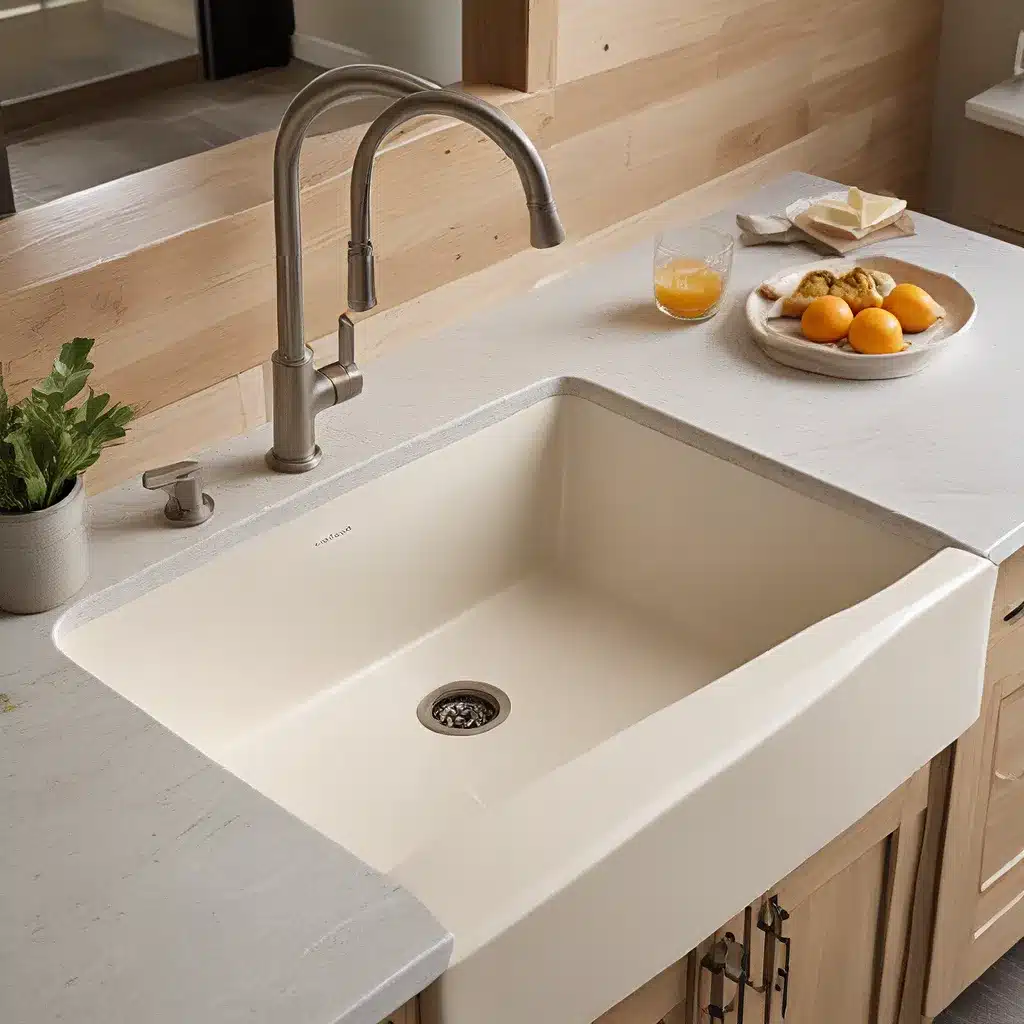
In today’s eco-conscious era, water-efficient homes stand as a testament to sustainable living, moving beyond simple conservation to redefine our everyday interactions with water within our homes. This transformative approach is particularly evident in kitchens and bathrooms, the traditional hotspots for water usage, which are now becoming the epicenters of water-saving innovation through thoughtful design principles.
Embracing the Form-Meets-Function Design Principle
Modern low-flow fixtures elegantly marry aesthetics with efficiency, demonstrating how design and technology weave together to create aesthetically pleasing and water-efficient products that seamlessly integrate sustainable living into daily life. From toilets and showerheads to faucets, today’s fixtures complement any interior style while conserving water, proving that water conservation can be both practical and visually appealing.
Repurposing Waste into a Valuable Resource
Greywater systems embody the principle of reimagining and repurposing, transforming wastewater from showers, sinks, and laundry into a valuable resource. This innovative approach reduces the demand for fresh water and offers a practical solution to water scarcity, weaving the principles of the circular economy into home design. By incorporating these systems, homeowners can significantly reduce their reliance on municipal water supplies and contribute to the broader movement towards sustainable water management.
Intelligent Efficiency: Leveraging Smart Water Management
The guiding principle of smart water management is intelligent efficiency. By incorporating smart water management systems and leak detectors, homes become more responsive and adaptive to water usage patterns. These systems offer real-time monitoring and control, embodying the principle of proactive management and informed decision-making. Further integrating municipal smart water apps extends this efficiency, creating a cohesive community-wide water conservation strategy that empowers homeowners to take an active role in preserving this precious resource.
Efficiency without Compromise: Sustainable Appliances
Energy-efficient appliances, especially those boasting ENERGY STAR ratings, embody the efficiency without compromise principle, highlighting that superior performance and reduced water usage can go hand in hand. This approach, rooted in reimagining and repurposing, showcases the crucial role of innovative design in appliances, aligning water conservation with consumer demands for convenience and high functionality. Whether it’s a washing machine or a dishwasher, homeowners can now enjoy the benefits of water-efficient appliances without sacrificing the quality or functionality they expect.
Education: Empowering Homeowners to Make Informed Choices
Updating a home into a water-saving wonder isn’t only about the gadgets and gizmos; it’s about changing how we think about water. Education initiatives targeting homeowners are pivotal in this evolution, providing guidance on water conservation techniques and demonstrating the dual benefits of water-efficient appliances: substantial financial savings and an enhanced sense of well-being. These informed choices not only optimize water use in individual households but also bolster the larger movement needed to mitigate the water crisis.
Sustainable Sink Materials: Embracing Recycled Glass
In the realm of sustainable design trends, recycled materials have emerged as a versatile and sought-after choice, particularly in the form of recycled glass countertops. Crafted from post-consumer glass cullet, these countertops breathe new life into discarded materials, embodying the essence of repurposed elegance. Beyond their eco-friendly appeal, recycled glass countertops boast a myriad of advantages that make them an attractive choice for eco-conscious consumers, including durability, heat resistance, and easy maintenance.
The wide range of colors and textures available in recycled glass countertops allows for endless design possibilities, ensuring a customized and unique look for every space. By incorporating these sustainable materials into their bathroom and kitchen designs, homeowners can make a bold statement while reducing their ecological footprint and contributing to the conservation of natural resources.
Silicone: The Versatile Choice for Sustainable Kitchen Design
In the ever-evolving world of interior design, the kitchen is a space that marries form and function, and silicone-based products are emerging as essential components in this transformation. Silicone sealants play a crucial role in ensuring airtight seals around vital kitchen focal points, such as the sink, preventing leaks and keeping pests at bay. These sealants also contribute to energy efficiency by stopping drafts and preventing heat loss, making them a practical and eco-friendly choice.
Beyond sealants, silicone-based grouts are gaining popularity for their excellent water resistance, durability, and reduced environmental impact compared to traditional grout production. Silicone storage solutions, such as reusable storage bags and boxes, offer a sustainable way to keep items organized or fresh in the fridge, further enhancing the kitchen’s eco-friendly credentials.
The versatility of silicone extends to its application in smart appliances, where it can create seamless, minimalist, and streamlined aesthetics that seamlessly integrate with the kitchen’s design. Counter-depth refrigerators and smart microwaves with touchscreen interfaces and voice commands exemplify how silicone can contribute to the multifunctional and tech-savvy nature of the modern kitchen.
Embracing Color and Creativity in Sustainable Design
The kitchen has become a canvas for creative expression, and silicone plays a crucial role in this transformation. Its resistance to extreme temperatures and ability to seal gaps make it an ideal choice for incorporating bold colors and design elements into the kitchen, from vibrant cabinet finishes to striking backsplash tiles. The durability of silicone ensures that these vivid hues and design statements endure beautifully over time, making it a practical and aesthetically pleasing solution for eco-conscious homeowners.
In conclusion, the journey towards sustainable living is multifaceted, and the evolution of washbasins, sinks, and bathroom fixtures is a testament to the ingenuity of modern design. By embracing innovative materials, smart technology, and education, homeowners can create water-efficient and eco-friendly living spaces that not only reduce their environmental impact but also enhance their overall well-being and quality of life. At Washbasin Factory, we are committed to providing our customers with the latest sustainable solutions and design trends, empowering them to make informed choices that contribute to a greener and more sustainable future.

